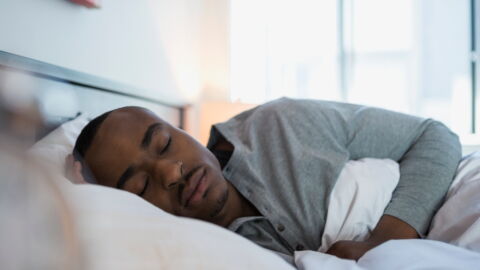Sleep talking is a mysterious phenomenon that a majority people have done at least once in their life. While the reasons behind the action remains unknown, what we do know is that at least 66% of people talk in their sleep. This widespread phenomenon is known as somniloquy and very little is known about this subject so far.
Discover our latest podcast
What causes somniloquy?
One thing that scientists have been able to uncover is that the condition might be hereditary and certain factors like sleep deprivation, stress, fever, alcoholic consumption, or the use of drugs can promote sleep talking.
If you’re a sleep talker yourself, you might be relieved to find out that the words that are uttered during sleep have no little to no connection with what’s happening in one’s day or life in general.
A symptom of a serious disease
And although a vast majority of the population will experience somniloquy at some point, it can be dangerous to a select few people—especially those who have been sleep talking out of the blue. Rafael Pelayo, sleep specialist at the Huffington Post, explains:
If you’ve been sleep talking for years, I wouldn’t be concerned. However, if it’s something new, I would explore it.
According to doctors, it can be a sign of Parkinson’s if a person over the age of 50 starts suddenly talking in their sleep. It can also be a problem if the somniloquy is accompanied by recurrent nightmares, snoring, or sleep apnea. James Rowley from Detroit Medical Centre told Huffington Post:
If sleep talking is associated with bad dreams, recurrent nightmares, snoring/witnessed apneas, there may be reason to discuss the recurrence with your physician.
In some cases, you may need to have a followup sleep study, like a polysomnogram, to determine if you do in fact have another sleep disorder.















